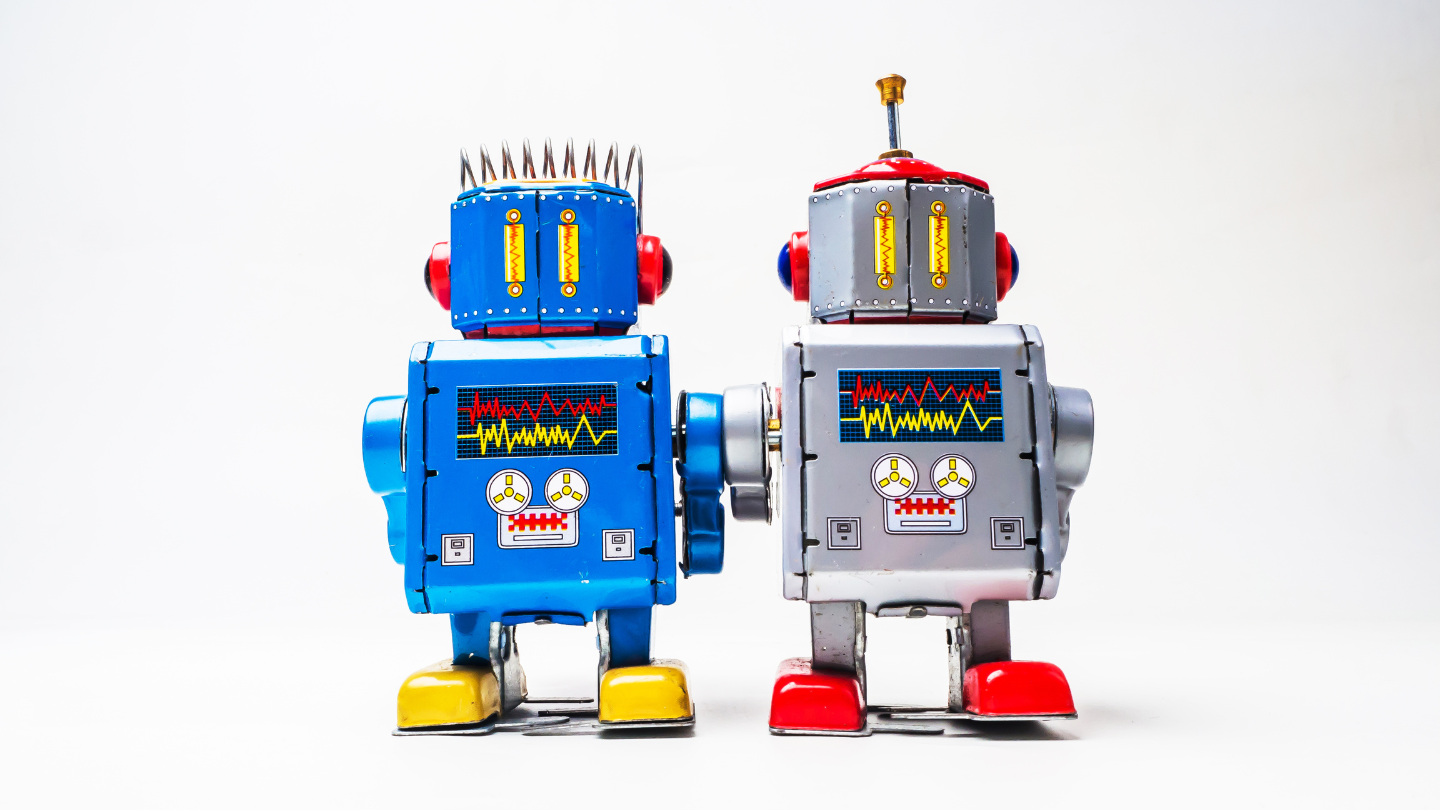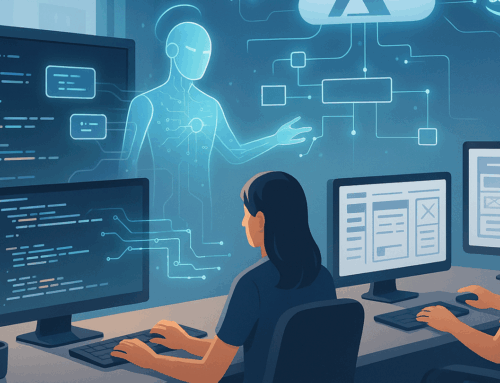You’d have to be lacking a cellphone or any other digital device to have not heard about AI’s role in every endeavor, from space exploration to school assignments. MIT’s Sloan School of Management views AI as a “general purpose technology,” like electricity, internal combustion engines, and computers. So, there are many general uses for AI. Specifically, how is Artificial Intelligence impacting app modernization projects?
Understanding the Role of AI in App Modernization
No-code and low-code environments have given some businesses ways to create apps or quickly add functionality in recent years, but generative AI is different. Code-generating AI software is available for many languages and applications. Developers can type natural language instructions for the AI model, and the model will provide a response written in code for the requested language. Much like AI-written versions of documents, AI-generated code isn’t perfect, but it can and does save time.
According to Google AI researchers, AI code generation can save developers up to 30 to 40% of the time they used to spend writing code. McKinsey has estimated that AI can save up to 50% of developers’ time in code documentation. Further, AI can save 20 to 30% of developer time in code refactoring. However, for higher-level tasks, AI saves less than 10% of developer time.
AI speeds up app modernization projects and it can also potentially improve them by performing repetitive tasks. This frees up tech pros to spend their valuable time on planning, analysis, and strategy. AI isn’t yet capable of performing higher-level skills like understanding business needs and establishing an effective strategy for application modernization.
Implementing AI-Driven Strategies for App Modernization
AI has many uses in app modernization projects, from assessing how apps are currently performing to testing and extracting key functions to determine strategy and timeframes for modernization.
The most advanced software products available today use AI as well as related technologies like machine learning (ML) to enhance applications. Amazon SageMaker, a managed solution for machine learning algorithms, enables applications to work with extremely large amounts of data. A financial services firm with nearly 20 million clients used Amazon SageMaker to access customer data, generate insights, and build app solutions to better serve the large client group. The firm’s chief data science administrator said that prior projects analyzing customer data took two to four weeks, but using Amazon SageMaker, establishing more sophisticated and stable data insight environments took “a few hours and at most, 1 day.”
AI’s capabilities in speech recognition and image processing now enable apps to communicate on a more effective, responsive level with users. For example, multimodal AI has contributed to app modernization in many healthcare applications. While facial recognition has gotten a lot of publicity, AI can also analyze many other forms of images, recognize patterns, and identify objects, making it particularly useful for IoT app modernization projects.
Another tool, Azure Cognitive Services, can help to harness AI’s advanced capabilities in applications. This suite of APIs from Microsoft can introduce speech recognition, natural language processing, computer vision, and ancillary functions like sentiment analysis.
As one example, using Azure Cognitive Services, the Bank of Montreal modernized its risk analysis module, enabling risk calculations to be run twice as fast for 30% less cost.
Businesses that have significant tech debt in their applications can especially benefit from the use of AI in their app development projects. AI can aid developers in planning app modernization in an ever-evolving, iterative way, not only speeding the development process but also highlighting areas of heavy tech debt, and helping to establish the most effective timelines and milestones for modernization.
Measuring Success Metrics of AI-Driven Application Modernization
It can be helpful to think of AI as another “hand on deck” for modernization projects. AI can speed the process as it not only introduces advanced capabilities to apps but also enables tech teams to create innovative solutions and perform strategic analysis throughout project lifecycles.
Some of the key success metrics in app modernization include:
- System performance
- User adoption rates
- Cost savings and return on investment (ROI)
- Security improvements
- Compliance rates
- Customer satisfaction
AI can also provide lists of KPIs (key performance indicators) and performance benchmarks throughout project lifecycles. During the modernization project, AI can help to monitor and track progress through development, implementation, and launch.
Challenges and Solutions in Adopting AI for Application Modernization
Looking at different case studies in app modernization, AI has proven helpful in meeting a variety of common challenges. They include:
- Legacy code rewriting: AI is able to successfully help in rewriting code for apps that need legacy code rewritten to meet current challenges and also “future-proofing” app code.
- Integrating microservices architecture: For businesses that are transitioning from a monolithic architecture to a microservices model, AI can help to decompose monolithic apps by analyzing usage patterns and dependencies.
- Cross-platform compatibility: AI can quickly analyze intricate compatibility patterns across different platforms and diverse environments, creating effective cross-platform code, whether for mobile, web-based, or desktop apps.
- Integrating emerging tech: As hardware and other technologies become increasingly sophisticated, AI can create connectors, code snippets, and interfaces for IoT, blockchain, and other emerging tech.
Future Outlook of AI-Driven Application Modernization
As the pace of app and tech development continues to accelerate, AI is anticipated to become more influential in analyzing and optimizing code for dynamic purposes and efficient resource utilization.
Contact Ascendle to discuss the benefits AI can hold for your app modernization project, not only today but in the future.






